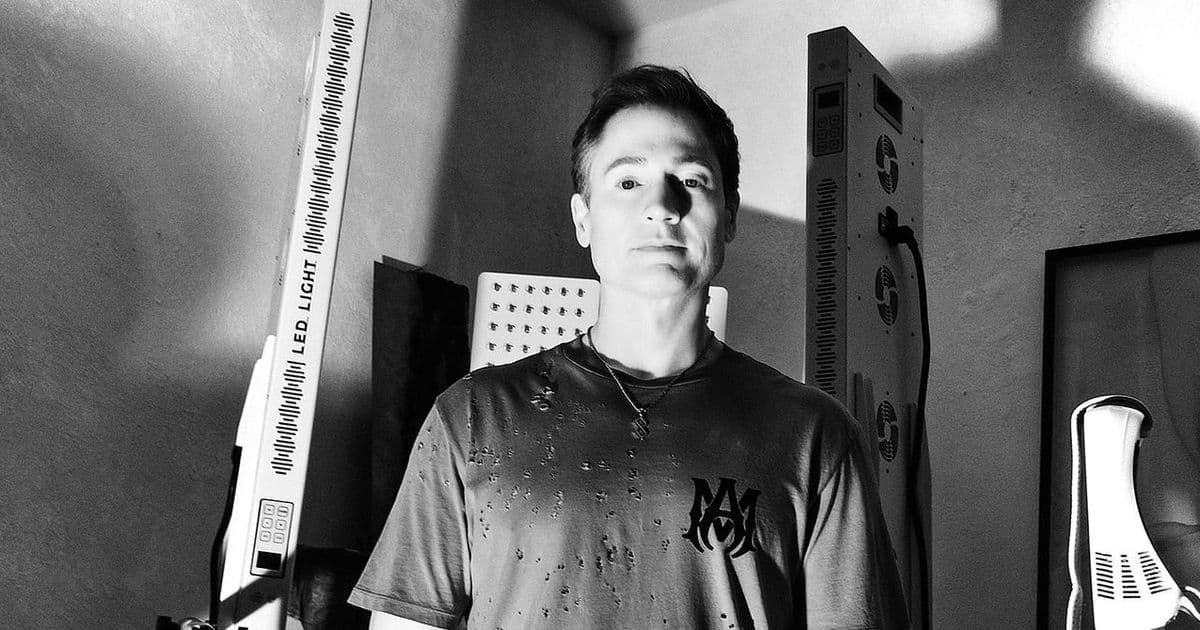In an exclusive WIRED interview, tech entrepreneur Bryan Johnson reveals the intricate details of his radical anti-aging protocol and his vision for a world where AI renders death obsolete. He confronts controversies around his supplement business, confidentiality agreements, and the 'Don't Die' philosophy aiming to reshape human existence.
The first clue that something is amiss in Bryan Johnson’s meticulously controlled world isn’t the rows of specimen cups or the blood coolers lining his Venice, California home—it’s the fruit. Amid perfectly arranged kiwis and avocados, a mold-encrusted orange and fuzz-covered lemons sit forgotten, a stark contrast to the $800 million tech mogul’s obsession with perfecting his biology. This paradox sets the stage for Johnson’s high-stakes gamble: using data, discipline, and AI to conquer aging itself, all while navigating a storm of public scrutiny and ethical quandaries.
The Algorithm of Agelessness
Johnson’s life is a symphony of quantification. After selling his fintech company Braintree in 2013, he launched Project Blueprint—a regimen that reads like a sci-fi manifesto. His days begin at 4:30 a.m. with 10,000-lux light therapy, scalp serums for hair growth, and hyperbaric oxygen sessions, all calibrated to achieve what he calls “the healthiest body on Earth.” He stops eating by noon, relying on a precise cocktail of supplements and plant-based nutrients, while tracking metrics like a resting heart rate of 48 BPM and a body temperature lowered by 4°F—a tweak he claims extends lifespan.
"Why would I fight daily decisions when they can be automated?" Johnson tells WIRED. "I’d rather spend my brain capacity on the future of the human race."
This extreme control, however, blurs into obsession. When asked if his behavior mirrors an eating disorder, Johnson reframes it as societal addiction: "Most people in America have an eating disorder... I don’t want to be addicted to anything. I want agency over my existence." Yet, the irony is palpable: a man systematizing every bodily function while mold spreads in his kitchen.
From Supplements to Salvation: The AI Pivot
Johnson’s ambitions extend far beyond personal health. He envisions AI as humanity’s gateway to immortality, arguing that superintelligence could allow humans to “upload” consciousness and achieve near-eternal life. This isn’t just speculation—it’s the foundation of his self-styled religion, Don’t Die.
"Death has always been inevitable, but now we have a real possibility of extending lifespans to an unknown horizon," he declares. "Existence itself must become the highest virtue."
Johnson’s AI avatar, trained on his life’s data, exemplifies this shift. He believes aligning AI with a global “Don’t Die” ethos could prevent existential threats like nuclear war, framing it as an urgent ideological void to fill. But the bridge between philosophy and commerce is fraught. His company, Blueprint, sells supplements and aging tests—products born from his personal needs but now mired in controversy.
Controversies and the Cost of Control
A recent New York Times investigation scrutinized Blueprint’s financial health and Johnson’s use of extensive confidentiality agreements (NDAs) with employees. Johnson vehemently denies the allegations, calling the report "fucking made up" and attributing the NDAs to past extortion attempts, including a $9 million demand from his ex-fiancée.
"When you have money, it changes everything," he explains, referencing a legal battle that he says vindicated him. "I tried to be transparent, but you need boundaries."
Critics argue the NDAs stifle dissent, especially given Johnson’s public intimacy about his body (he routinely shares data on erections and sleep). Yet he insists Blueprint is a supportive workplace, prioritizing employee feedback and customer satisfaction—even as he considers shutting down the company to preserve his philosophical credibility.
The 25th-Century Legacy
Johnson’s endgame isn’t profit but posterity. He dreams of the 25th century viewing our era as the dawn of superintelligence and agelessness, with himself as a pivotal figure. Fame, he asserts, is essential for scaling his ideology, granting access to power players and amplifying his message.
"If I had to choose between fame and a billion dollars, I’d choose fame 100 times," he admits. "We need the fastest-growing ideology in history to survive this moment."
But beneath the grand vision lies a tension: Can a man so fixated on controlling life escape the irony of an unpredictable end? As Johnson himself jokes, a falling tree could render it all moot—leaving behind a cautionary tale about the perils of playing god in the algorithm age. For now, his blueprint remains a high-tech gamble on humanity’s most primal fear, blurring the line between innovation and hubris.
Source: Adapted from the WIRED interview "Bryan Johnson Wants to Live Forever" by Katie Drummond, published on wired.com.

Comments
Please log in or register to join the discussion